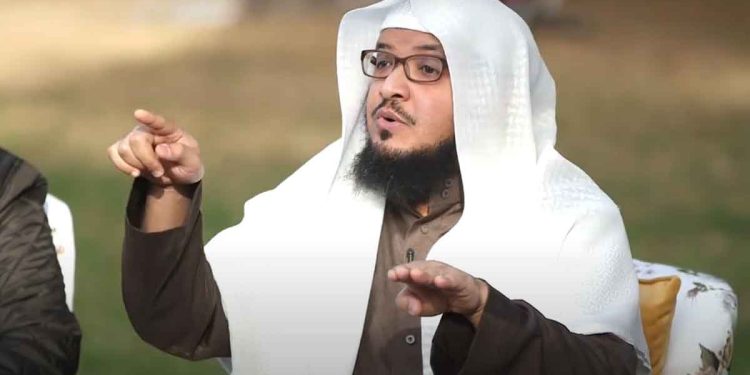Respiratory physician Dr. Abdel Mohsen Al-Ahmad has entered his eighth year in Saudi prisons for expressing his opinion.
Al-Ahmad was arrested in September 2017, when a Saudi force stormed his home and took him to an unknown destination, without disclosing the reasons for his arrest.
Human rights groups suggested that the reason for Al-Ahmad’s arrest was his issuance of a video criticising the policies of the Saudi regime, accusing it of yielding to external pressures, and seeking to corrupt the values of Saudis.
Al-Ahmad is one of the victims of the famous September 2017 arrest campaign, the largest series of arrests witnessed by Saudi Arabia.
The “September Arrests Campaign” included a number of preachers and academics, such as Dr. Salman Al-Awda, Dr. Awad Al-Qarni, the Imam of the Grand Mosque in Mecca, Saleh Al-Talib, and Dr. Safar Al-Hawali. It also included thinkers and economists, such as Issam Al-Zamel, Jamil Farsi, and Mustafa Al-Hassan, who was later released due to his deteriorating health and cancer. It also included journalists and a number of activists, both male and female.
The Saudi authorities impose a blackout on the conditions of many detainees, while news leaks confirm the deterioration of the health of many of them, or their exposure to torture and ill-treatment.
Al-Maliki’s arrest due to his intellectual activity is a clear example of the Saudi authorities’ violation of human rights and freedom of expression, and the difficult circumstances that activists and human rights defenders face in countries that restrict freedom of expression.
The ongoing political arrests in Saudi Arabia require affirming the right of every individual to express their opinion and participate in public dialogue, without fear of arrest or punishment, and the importance of adhering to the legal system in any country respecting the principles of human rights and international humanitarian law that guarantee the protection of individuals from arbitrary arrest, torture, and cruel or inhuman treatment.





























